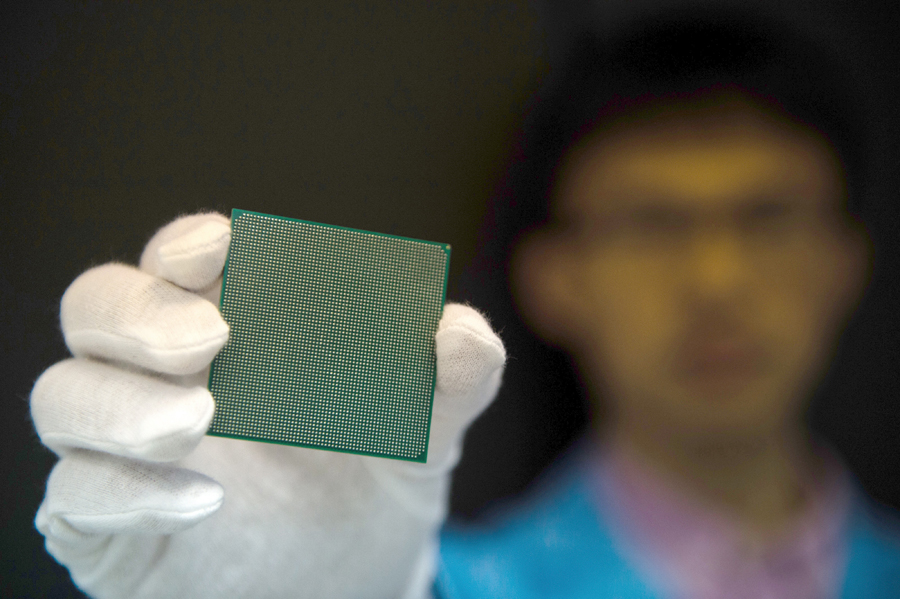But government procurement policy mandated use of domestic chip So if Lenovo want to sell to government which I am sure they wanted to, they have no choice but using domestic chip
Domestic chips to get a big boost
China Daily, May 24, 2018

A technician demonstrates a domestically developed chip in Wuxi, Jiangsu province. [Photo/Xinhua]
China is including domestic processors in its government procurement plans :enjoy: as the nation steps up its effort to promote the application of homegrown chips in government agencies and State-owned enterprises.
The move is likely to put pressure on U.S. tech giant Intel Corp whose chips are now widely used in China's server market :lol:, experts said on Wednesday.
According to a proposal published on the official website of the Central Government Procurement Center, servers powered by domestic central processing units including Loongson, ShenWei and Phytium are included in China's government procurement plan for 2018-19.
This is the first time that homegrown chip-driven servers have been included in such a proposal, underlying China's determination to promote the application of domestic processors which are making steady progress in performance. State-owned enterprises and government agencies are important buyers of information technology equipment in China.
Loongson is the brand name for China's first self-developed general-purpose microprocessor. ShenWei is a homegrown CPU that powers Sunway TaihuLight, the world's fastest supercomputer. Phytium CPUs are developed by the National University of Defense Technology, a top military academy in China.
Nicknamed the "brain" of electronic products, chips lie inside a wide range of products and power mobile phones, computers, automobiles and other equipment. In recent years, China has spent more than $200 billion on imported chips annually, more than the amount spent on crude oil imports, according to official data.
Hu Weiwu, president of Loongson Technology Corp, said the move is a "milestone" for homegrown chips, "highlighting the strong support the government gives us".
So far, most servers included in government purchase plans come with Intel processors. But as domestic chips make progress, they are good enough to support certain application scenarios, Hu said.
The best and bigger reason going for domestic chips along with a domestic OS is cybersecurity. Using Intel chips for a secure system is like building a fortress with swiss cheese.
